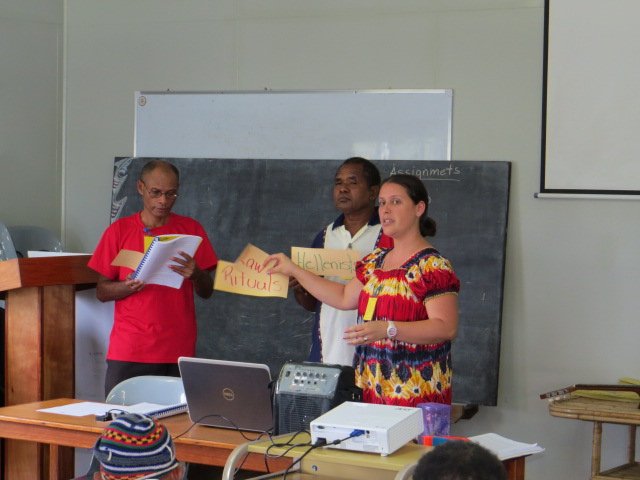For much of the twentieth century, Western countries in North America and Europe were by far the primary senders of those taking the Gospel message to the ends of the earth. Pioneer missionaries left home and culture, sailing the ocean for months, giving up many personal comforts, in order to bring the Good News of salvation through Christ to those who hadn’t yet heard. Facing many challenges such as finances and sickness, shocking numbers of these cross-cultural workers died on the soil of those they went to serve.
Missionaries are still traversing the globe, with many of the same challenges, and certainly with the same determination, to see all peoples worship Jesus Christ, the King of Kings and Lord of Lords. However, ever larger numbers of the cross-cultural workers of today are coming from the Global South, or Majority World, the very lands that the pioneer missionaries set out originally to evangelize. In the twenty-first century, missions is from everywhere to everywhere.
We have the privilege to be working alongside a team of Costa Ricans with FEDEMEC (the Costa Rican Evangelical Missions Federation) to help train and care for Latin missionaries who are all over the globe.
Costa Ricans – like thousands of other Latin Americans – are impacting the world through church planting, Bible translation, medical care, help for those caught in human trafficking, ministry to children and refugees, and countless other ways. They work with Hindus, Muslims, Buddhists, animists and atheists. They learn multiple languages, eat a variety of foods, and ride in the most unusual vehicles. They are mature believers who teach and mentor us, even as we mentor and teach them.
FEDEMEC has been sending out missionaries for over 30 years under fully Latin leadership. We serve FEDEMEC at their invitation. Our primary role with the Latin Missions Movement involves helping to train Costa Ricans before they go to the field, and caring for them once they reach their country of service.
The fascinating training niche that God has given me (Paul) to fill is teaching how to live, serve, lead and communicate in another culture, complete with tools to prevent and manage conflict. I do this through both ESEPA Seminary and FEDEMEC.
Particularly I enjoy equipping our Latin fellow workers with “Cultural Empathy” to understand the ‘other’ culture – both the host culture where they serve, and their teammates who are most often from multiple continents. “Be prepared,” I tell them smiling, “We Gringos and Europeans can be hard to work with.”
Just today I received feedback from a student who is preparing to go out to an unreached people group, and has already had to work with Westerners. “I confess that I always saw Westerners as “heartless” and selfish people but now I understand that it is not that they intentionally hurt other people but simply that their thinking is totally different from our culture.” Yes!! This is the kind of open-minded breakthrough we look for, a sign that a worker is likely ready to serve in a multicultural team.
Beginning in 2002 we assisted FEDEMEC in developing their candidate training program, which is now directed by a Costa Rican. Over the years of training we came to know and love so many of the workers that we fell very naturally into a role of caring for them. Now we form part of the FEDEMEC Member Care team. We maintain regular contact with our share of the missionaries, and we not only check on how they are doing, but we also try to share general news from home, like Costa Rican soccer standings or weather and volcano updates. Our goal is to develop a relationship of love and trust. We build on our own experiences as missionaries as we help our workers to deal with team difficulties, raise third culture kids, develop healthy marriages, and learn to be resilient while living with the day to day stresses of another culture.
When the missionaries return for Home Ministry Assignment, we help with the logistics involved in getting acclimated during the transition. Once they feel settled, we debrief them about their experiences during the last term. And we try to incorporate fun things into their lives such as outings and meals together. We laugh together, cry together and pray together.
The training relates directly to our follow up care. Nicolas and Naty were having difficulties getting to know, let alone work with, their colleagues who were mostly North Americans, Europeans and other Westerners. We were excited to see them become more hopeful when we were able to coach them on ways to socialize, that their co-workers might be more likely to recognize and accept.
We feel a deep sense of partnership working side by side with these co-workers in the Gospel. While we missionaries are all equal, we are not the same. Latins have shown some definite advantages in their cross-cultural service: making relationships more quickly, being less likely to bog down in doctrinal issues, more flexible in accepting changing roles and goals.
On the downside, finances have been a continual thorn in the side of the Latin missions movement. Because of the difficulty of raising financial support, FEDEMEC is offering intensive fundraising training in their upcoming candidate school.
Is this the end of pioneer missionaries from the Western world? Absolutely NOT! Until the last people group has received the good news of Christ, there will continue to be a need for more pioneers, from any church anywhere, who is willing to hear God’s call to send out workers into the harvest – and we can continue to join hands with believers from all continents to see the task through to the end. Matt 24:14




![Carlos y Deinis (2)[1]](http://uwm.org/wp-content/uploads/2016/07/Carlos-y-Deinis-21-1024x768.jpg)
